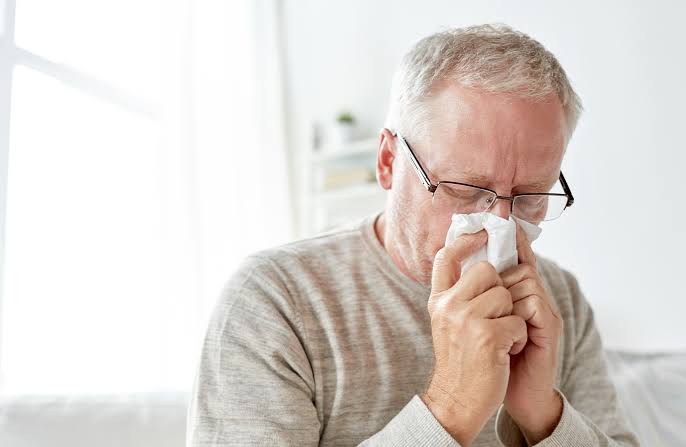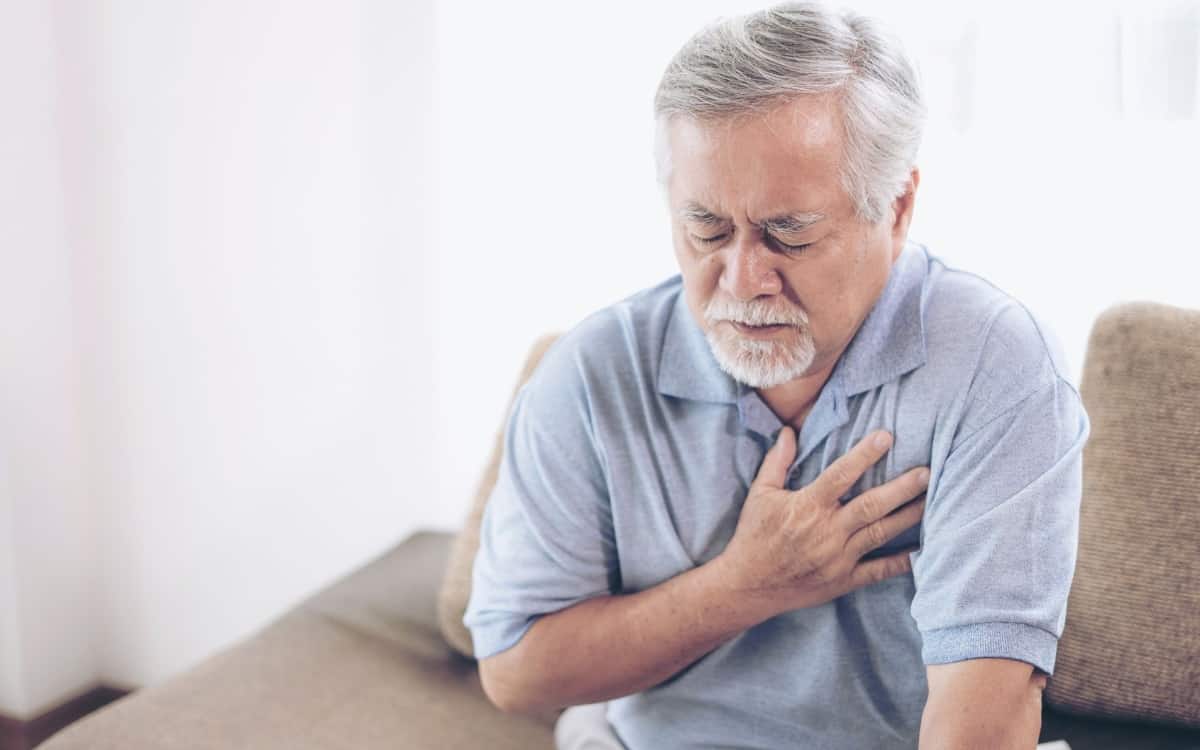A lot of people mistakenly believe that flu is a gastrointestinal illness, from which one is experiencing diarrhea, vomiting, and nausea. And, according to Healthline, even though it is not completely wrong “to refer to that type of illness as the stomach flu,” flu or influenza is a respiratory condition quite more serious.” It can also at times be life-threatening, particularly in the elderly. This is the reason why the flu in seniors should be taken seriously.
In elderly individuals, specifically among those fragile or weak, influenza or flu can be fatal. Recent reports had it that about 2 years ago, an extremely aggressive strain of influenza took place that resulted in death, even if an adult is already healthy. Flu can result in secondary infections, as well, of a serious nature like pneumonia, for one.
Moreover, Influenza is viral in contrast to naturally bacterial. Therefore, there are no antibiotics available to cure flu. There are anti-viral medicines that can help in the reduction of the course of the flu. Nevertheless, one should take these medicines within 72 hours of the occurrence of the illness. Relatively, most people simply do not realize that they already have flu only until after 72 hours. You can avoid this by knowing the symptoms, possible complications, and preventive measures.
What are the Symptoms of Flu in Seniors?

At the beginning of the flu, symptoms can take place fast, with some people acquiring symptoms 1 to 4 days following exposure to the virus. For older people who are sick, it is important that you know the difference between the common cold symptoms and flu symptoms. The symptoms of both conditions can be similar. However, the ones for cold are typically milder. Additionally, cold symptoms take place gradually.
The symptoms are different from the flu. Not only they are abrupt, but flu symptoms can also cause other symptoms not occurring with the common cold. Here are some of the common cold and flu symptoms an elderly individual may experience:
- Sore throat
- Runny Nose
- Congestion
- Coughing
For someone already with the flu, additional symptoms may involve: - Headache
- Body aches
- Chills
- Fever
- Chest discomfort
For a person whose age is above 65 years old, and he has developed any of the flu symptoms above, he may consult a doctor immediately to lower the risk of flu complications. In connection to this, if the senior consult his doctor within the first 48 hours of the first symptoms, the medical expert may prescribe medicine, specific antiviral drugs. In addition, when the medicine is taken early, it can reduce both the severity and duration of the illness.
What are the Possible Complications of Flu among Older People?
Complications of flu in seniors are not as ordinary as the one occurring in younger individuals who have a healthy immune system. Nevertheless, up to approximately 85% of seasonal flu-related fatalities occur in those who are 65 years of age, or older. More so about 70% of hospital confinement because of the flu occur in a similar age group. Some of the complications of flu are not as serious and may engage an ear infection or sinus. More severe complications of flu in seniors can include pneumonia and bronchitis and they affect the lungs.
Meanwhile, bronchitis occurs when inflammation develops in the bronchial tube’s lining. These are the tubes that carry air to the lungs. Some of its symptoms include:

- Fatigue
- Chest pains
- Fever
- Coughing up green, gray, or yellow mucus
- Shortness of breath
How is Flu in Seniors Treated?
It is important that you take your parents to the doctor within the first 48 hours of the symptoms. In addition, antiviral treatment of flu in seniors is less likely to reduce the duration or lessen the infection’s symptoms. Nevertheless, such a treatment may still be prescribed if the older adult is at high risk for flu-related complications.
Flu in both seniors and younger individuals don’t have a specific cure. Therefore, the virus needs to run its course. Relatively, though, the symptoms are responding to over-the-counter flu and cold medications. With the doctor’s approval, an elderly individual can take ibuprofen as instructed for fever and pain.
It is also essential to get a lot of rest for the strengthening of the immune system. Rest also helps fight the virus, especially among seniors. Staying at home while the patient is feeling and experiencing the symptoms will make one feel better within a week or two. If an elderly in your family experiences complications, his doctor may need to prescribe antibiotics. These drugs help treat secondary infections like a sinus infection, ear infection, pneumonia or bronchitis. The senior at home may also need a cough suppressant for a prescription for a severe cough.
What Should an Elderly Individual or his Caregiver to Prevent Flu from Occurring?
Below are some of the steps to take by an elderly adult or his caregiver to prevent flu in seniors from occurring:
• Have a Regular Flu Vaccine

According to The Centers for Disease Control and Prevention (CDC), all people, six months or older, need to receive a flu vaccine each year. It’s especially essential that individuals above 65 years old, as well as anyone who has multiple chronic conditions, acquire a flu vaccine every year. Moreover, the timing of vaccines is vital as it takes around 2 weeks from the time of influenza vaccination for antibodies which shields one from getting the illness to develop. Generally, this means, late October and the start of November are the best times to receive the flu shot.
• Make Hand Washing a Habit

Beyond the regular and high doses of flu vaccine, hand washing is the most effective way to reduce the infection’s transmission. This virus easily spreads through a mechanism or droplets. Anybody can come in contact with flu germs on things that other people with flu or cough, have already contaminated. It can also spread after getting in physical contact with someone who just sneezed. Essentially, the droplets are invisible. Therefore, washing hands throughout the day is important.
• Stay at Home while Sick or when not Feeling Well to Avoid Flu in Seniors

When the older adult is already feeling the symptoms, ensure that he stays home and takes care of himself. For both professional and family caregivers, teach the senior some self-care tips. These include getting sufficient rest and drinking adequate fluids. For achiness with fever, ensure that the elderly individual takes over-the-counter medicines like acetaminophen. However, be sure too that the older adult gets the doctor’s approval first before taking the drugs.
• If the Older Adult Does Get the Flu Virus, Let Him Know That He Can Always Get Help
Influenza viruses can have severe consequences. More so, it can also be certainly weakening even for individuals who are healthy. It is essential that the older adult knows he can receive all the help he needs to keep up with his daily activities as he recovers from the illness. In addition, it is not common for the patient to feel compromised for a week to 10 days. This duration can be a long time for a senior to be on his own. Therefore, reaching out to family and friends to seek help can be helpful.

